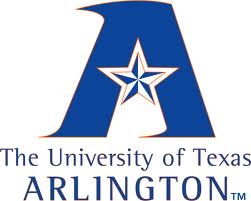 The University fuels 131,200 jobs a year, and its impact on business activity reflects about 4 percent of the North Central Texas economy, the study found.
The University fuels 131,200 jobs a year, and its impact on business activity reflects about 4 percent of the North Central Texas economy, the study found.
The University of Texas at Arlington has a $13.6 billion total annual impact on the State of Texas and fuels 131,200 jobs a year, according to a new assessment of the University’s operations, research and workforce enhancement effects on business activity by The Perryman Group.
UT Arlington’s impact reflects about 4 percent of the North Central Texas economy, the study found. Economic activity associated with the University also leads to incremental tax receipts of about $310 million a year to local governments and $639 million to the state, the study said.
The prominent consulting firm analyzed data ranging from enrollment and ongoing University operations to expanding research activity and the enhanced workforce productivity of rising numbers of UT Arlington graduates, among other factors.
The study notes that UT Arlington has made “great strides toward becoming a nationally recognized research institution” and said: “Through its ongoing and expanding instructional and research endeavors, UT Arlington serves as an ever-increasing catalyst for individual opportunity and economic and social development.”
President James D. Spaniolo said the Perryman report underscores the significant advantage diverse and active research institutions give their regions and the state overall.
“This report clearly demonstrates the tremendous benefit UT Arlington brings to North Central Texas and the Texas economy overall,” Spaniolo said. “Our students, alumni and faculty provide a highly-educated workforce to our region and are constantly advancing innovation and new technologies. Their work helps make North Texas one of the nation’s best places to live.”
The study also found that UT Arlington generates:
- $1.1 billion in total annual economic benefits to the state of Texas and more than 15,400 permanent jobs stemming from ongoing operations, including educational and research spending and student and visitor outlays.
- $64.5 million in incremental tax receipts to the State of Texas and $34.5 million to local taxing entities each year related to ongoing University operations.
- $502.7 million in output and 5,861 person-years of employment in the North Central Texas region related to recent and ongoing University construction projects.
Ray Perryman, president of the The Perryman Group, said the UT Arlington study reinforces his earlier findings about the potential economic impact additional Tier One institutions can have on Texas.
“When you look at the hard data, institutions like UT Arlington are major centers of employment and spinoff economic benefits,” Perryman said. “They generate business activity and opportunities for their immediate region, and they are one of the state’s most important sources of talent and technology – critical components of a healthy economy.”
He added: “The data makes a compelling case for ongoing investment in public institutions like The University of Texas at Arlington.”
Among the factors fueling UT Arlington’s economic impact:
- Enrollment growth over the past five years to more than 33,200 students, a 33 percent increase. Of the University’s 163,000 alumni, about 112,000 live in North Texas.
- Record numbers of degrees conferred in the 2011-2012 fiscal year. UT Arlington awarded more than 9,000 degrees, an 18 percent increase over the previous year.
- Record levels of research activity, with $66 million in related expenditures last year.
- Record levels of recent construction activity, with the completion of the Engineering Research Complex as well as the 20-acre College Park District, a residential and retail development anchored by the 7,000-seat College Park Center.
The report concludes that UT Arlington “serves as a source of economic stimulus through its ongoing operations and construction projects. Spinoff companies stemming from funding research provide still more growth, and the benefits of the enhancement of the regional workforce is sizable.”




